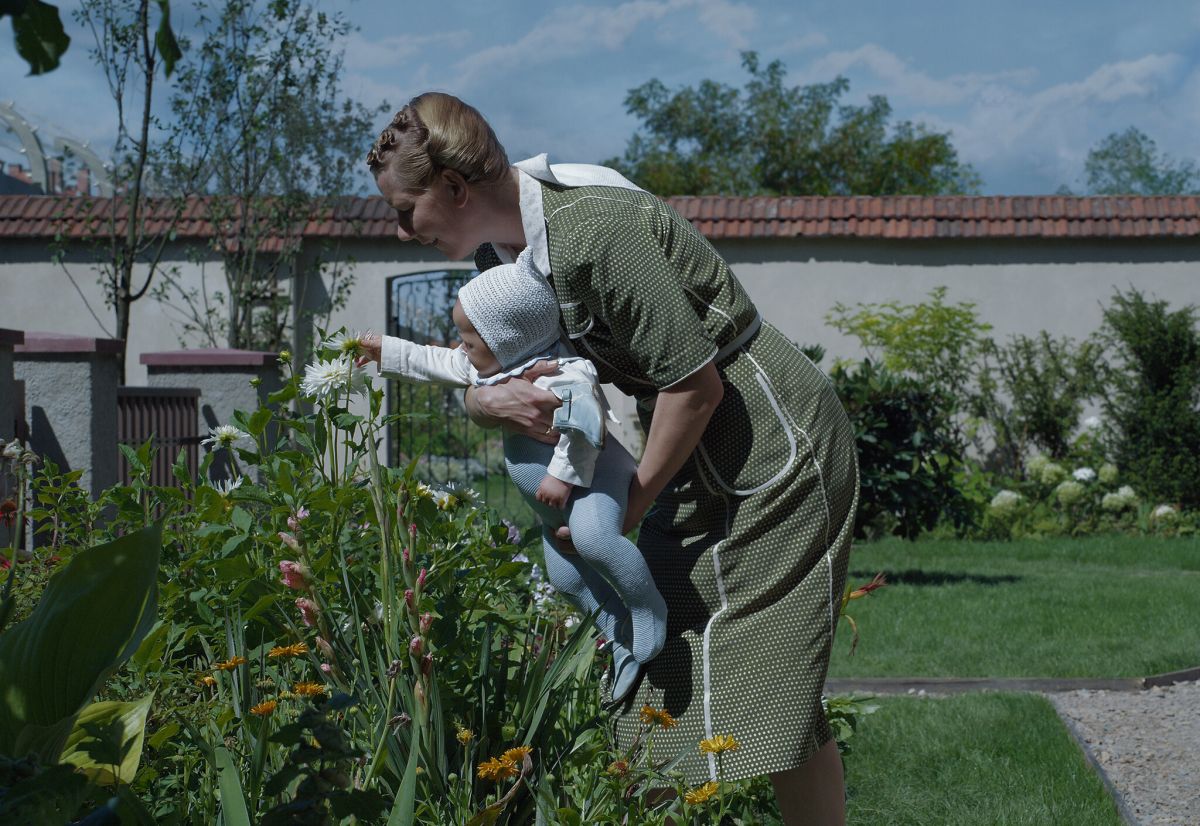The Zone of Interest review: Unseen horrors in Glazer’s heart-stopping return to cinema
By evanmeikle

The first moments of The Zone of Interest happen without picture, in complete darkness. Instead, simply an ominous drone calls out some indiscernible pattern for minutes at a time, equally baffling and unsettling the cinema audience. Aside from the film’s narrative and thematic abilities, the haunting soundscape of The Zone of Interest commands the greatest attention.
Johnathan Glazer takes a loose approach to his retelling of Martin Amis’ story and instead directs focus entirely onto the family of Rudolf Höss, the real-life commandant of Auschwitz. Through the medium of their daily domestic rituals, we tastefully observe the atrocities of the Holocaust and the casual evils of not just the Nazi officers in charge, but also the complicit evil of those who learned to normalize it.
The sound motif repeats throughout the film in moments that are sometimes poignant, and sometimes incongruous, but its presence, no matter the context, is always intimidating. Whether it mimics the sound of the camp crematorium, or its emergency alarm, or simply nothing at all, the horror and fear conveyed through this sound is perhaps one greater than any image could conjure.
The complete brilliance of sound designer Johnnie Burn’s efforts continues into The Zone of Interest’s diegetic world. Every dragged shuffle of Hedwig’s (Sandra Hüller) feet or movement of her garden equipment is heightened and emphasised. The soundscape naturally encourages us to listen in and appreciate each sound. Therefore, when the guttural screams of anonymous prisoners are heard, or the violent chugging of the perpetually approaching trains are detected, the implications of such sounds are felt much more viscerally.
This hyper-awareness draws into focus the moral abyss that resides in the Höss homestead, who treat these noises as though they were regular ambient sounds. It is what you hear, not see, that makes The Zone of Interest so viscerally chilling as it uses its score and sound design to dictate the film’s unsettling atmosphere.
In this, The Zone of Interest achieves something I have yet to see in any other Holocaust movie. The Höss family represents a picturesque imagination of domesticity, and so their appetite to happily live alongside the unparalleled horrors of Auschwitz represents a potent question that has occupied thought since 1945. How could the placid realities of the German people’s lives coexist with the understanding and execution of organized genocide?
The evil of the couple, however, is only fully felt in moments of startling normality. Deliveries of stolen clothes are sorted through nonchalantly; nearby gunshots are shrugged off indifferently, and the chimney fires that illuminate the night sky are soundly slept through. This eerie juxtaposition of the horror of the Holocaust and the mundane sequences that it is framed through is what elevates The Zone of Interest beyond a macabre subject and allows it to secure its place firmly in Glazer’s accomplished filmography.
Glazer seems almost to revel in the tediousness of much of its content, some scenes are long and even verge on boring, but in their mundanity, a sinister tension grows, and through it the film accesses its evil. The Zone of Interest offers a perspective yet unexplored in the realm of Holocaust movies, one that rejects the heroic catharsis or hopeful tendency that is overly abundant in the genre and instead embraces the era’s atmosphere with a poignant intensity.
In a time where a sense of passivity in the face of genocide is so pertinent, this film calls out desperately for resonance, and through this understanding alone, deserves attention.
4/5
The Zone of Interest is out now in cinemas







